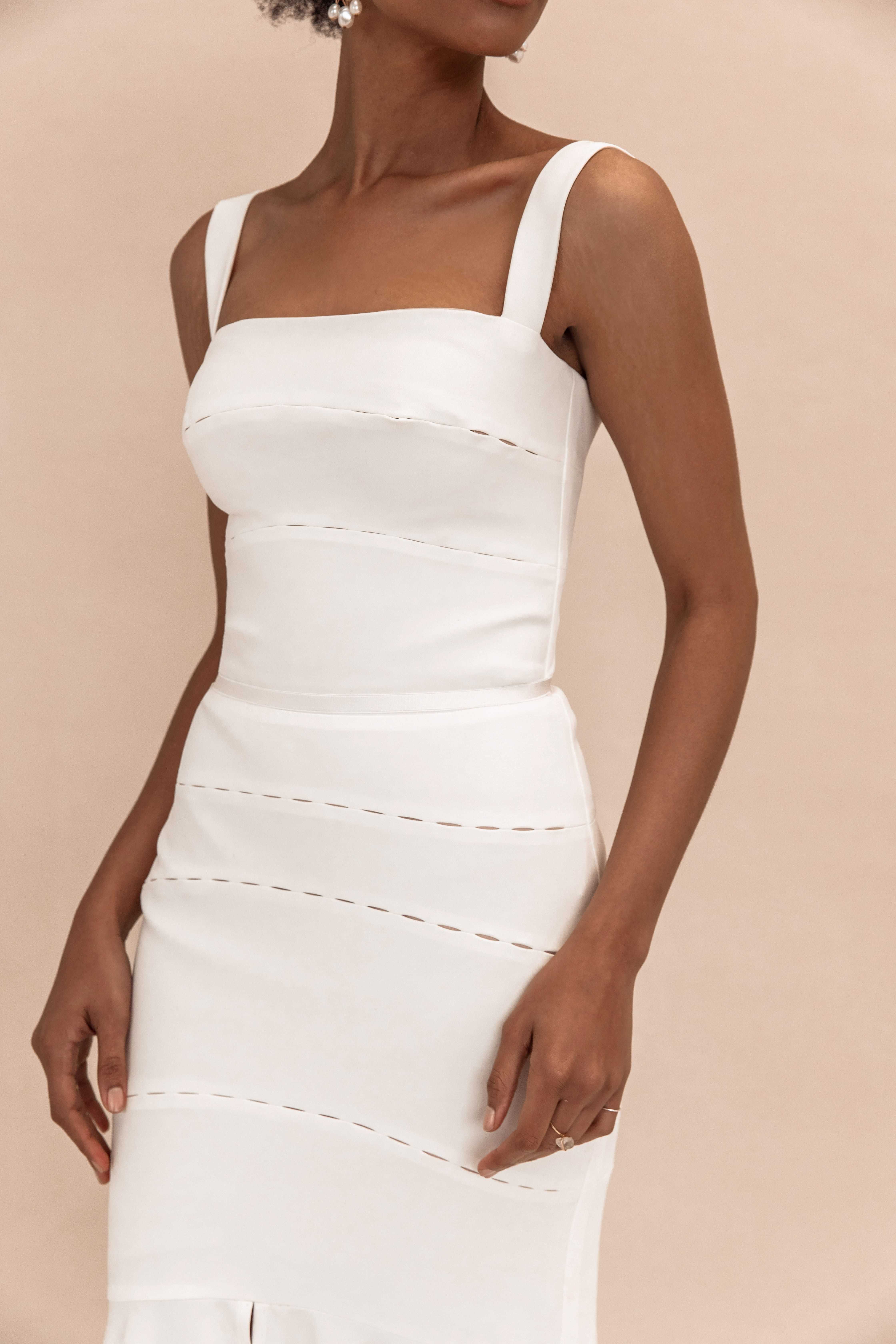Thanks to COVID-19, “reset” is a concept that everyone is talking about and considering. While this virus has brought much loss and sadness, there has been a lot of gains and many lessons learned in the process, such as an emergence of new ways of doing things; a reset. This is exactly what we see happening today in the fashion industry as a whole. Change is both inevitable and inescapable from now on in all areas of this industry, including the luxury sector and the mass market, but it was long coming.
Fashion Weeks’ expenses can be considered to have been out of control. While we all live to see the beauty, drama, and creativity of the runway, even industry experts knew it was hitting a dead end. For example, according to Vogue Business, a fashion show in New York can cost between $125,000 to 300,000. Expenses would include lighting, seating, venue, set design, models, production company fees, sound rental, and even car services. And that’s not even the worst part. Prices go even higher for the theatrical productions of the top luxury brands like Louis Vuitton, Gucci, and Chanel who have to budget immense traveling expenses to fly models, hairstylists, editors, and photographers from all around the world.
In addition to this irresponsible spending is the startling fast-paced production process. This process is known to cultivate an atmosphere of stress and anxiety for fashion industry workers on all levels, including the designers, models, and backstage hands.
While fashion may not be the same without the beloved fashion shows, the high spending and stressful working conditions is not a sustainable model.
So what would a reset in fashion look like?
For starters, brands should consider reevaluating their old business models and scaling down. This may mean showing fewer garments at each show and resisting the urge to consistently put out new merchandise in an ever competing market. Using local industry creatives in all fronts to reduce travel costs can also help.
Also, the practices in the retail sector also need to be reconsidered. It is very common for luxury brands to throw away or burn items in order to protect their brand image. The mass-market (stores that me and you normally shop at) is no better. They also tend to overproduce items that in turn creates a lot of dead-stock inventory, or merchandise that is never sold to consumers. These dead-stock items are eventually burned because of the extremely high levels of toxicity that even landfills wouldn’t be able to sustain.
A reset is also necessary for the sake of the industry workers. Considering their health and well-being, brands should put more priority on the highly-trained craftsmen and the labor-intensive hours it takes to create a luxury brand’s most iconic pieces. Let’s also not ignore the forgotten craftsmen in third world countries. They are continuously putting their lives at risk to make unnecessarily high amounts of clothing to meet our insatiable desire for new and trendy clothes.
In all honesty, if brands would scale down production it will be beneficial to everyone involved. Not only will it alleviate stress for industry workers, but it may also increase the brand’s uniqueness and exclusivity, making the customer’s investment in their collections even more valuable.
Fortunately, there are already some luxury brands that are making a reset. For example, Dolce and Gabbana is taking steps in reducing waste by offering leftover merchandise to employees in special sales. Others are collaborating with companies such as The R Collective to reduce waste by upcycling leftover textiles. Meanwhile, in the mass market sector, Zara has select locations where customers can drop off unwanted clothing to be donated to several agencies. But, they cannot do this alone; we too have a responsibility. It is not just up to just the people who design, create, market, and sell the clothes we buy. As consumers, we also need to understand the consequences of our spending habits and the processes by which our favorite brands operate.
We should start to demand transparency from the brands we invest in. We also need to reset the consumerism lifestyle of buying cheap and fast just to throw away and begin again whenever we get bored with our wardrobe, or another seasonal trend comes along.
Also, a reset in the fashion industry may mean learning to live a more simple and richer life not just categorized with the material things we have, but by life’s priceless treasures such as love, health, and joy. We should learn to take more time to value beauty and richness while enjoying the little things. Practice taking a step back from your fast-paced lifestyle of always feeling anxious and striving for the next, best, and latest thing.
As these times require a reset and change, are we courageous enough to let go of our old way of doing things and to be pioneers in the new?
Can we get a reset? Yes, please!
- The French Woman’s Secret to A Simple Life of Style and Grace - April 6, 2020
- The Fashion Truth That Commands a Reset - February 21, 2020




